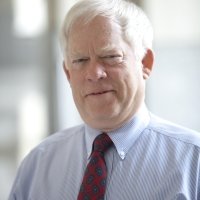
A blog of the Indo-Pacific Program
In this excerpt from The Leverage Paradox, Robert M. Hathaway discusses how the current administration can look to history for lessons on how to move forward with U.S.-Pakistan relations. You can download the full book or request a hard copy on our website.
In the real world, as Bush and Cheney found in dealing with Iran, Iraq, North Korea, Cuba, and other problematic actors, toughness and bald efforts to wield U.S. power produce decidedly uneven results. Indeed, leverage is generally most effective when the target country barely recognizes it is being leveraged.
Paradoxically, leverage should be as much about seduction as compulsion—drawing upon relationships, fostering a sense of shared purpose, creating obligation, making the other side want to satisfy you. In other words, the tasks of diplomacy. One ought not draw too sharp a distinction between leverage and diplomacy. Leverage is a component of diplomacy, not a substitute for it.
Not all diplomats feel comfortable with the term leverage. One Asian diplomat has insisted that Pakistan is not strong enough to leverage the United States. Rather, he argues, the United States from time to time places itself in a position where Pakistan can manipulate Washington.33 Other diplomats prefer the seemingly less coercive term influence.
But the terminology doesn’t in any fundamental way negate the idea of leverage. Most of the time, the two concepts—diplomacy and leverage—bleed together, in friendly and adversarial relationships alike. In their candid moments, diplomats will tell you that the calculations of leverage—who has it, how it can be used or deflected—is an everyday aspect of their profession. As one retired U.S. ambassador observed while talking about his chosen profession, “Leverage is literally in the atmosphere. It’s part of how you breathe in the job of diplomacy.”34
To achieve maximum impact, however, leverage should be employed subtly, even seductively. This maxim is nothing more than a recognition of human nature. “Subordination is an uncomfortable mental state, and an increasingly unacceptable one in an age in which equality and justice are dominant political values,” two leading political scientists have observed. “For this reason, power has to be masked in order to be effective.”35 Soothing language and a willingness to offer face-saving concessions are as important as coercion in exerting leverage. This is also where the appeal of soft power plays a role. While leverage can be about muscle, it can also be about attraction.
But not always, or under all circumstances. If the core interests of the two parties cannot be reconciled, a non-confrontational approach will achieve no better results than brute force. If the two sides have fundamentally different conceptions about the nature of the world they face and the threats that world poses, the skillful exercise of leverage is not likely to bridge that chasm. More than any other reason, that reality explains why the United States, for all its power, has so frequently experienced frustration in working with Pakistan. The leaderships of the two countries simply weren’t operating, intellectually and emotionally, in the same world. Their perceptual maps didn’t align.
Henry Luce and Donald Trump
In February 1941, Henry R. Luce, arguably the most influential publisher in America, penned an editorial for the mass-circulation magazine Life that heralded “The American Century.” Luce called upon Americans “to accept wholeheartedly our duty and our opportunity as the most powerful and vital nation in the world and in consequence to exert upon the world the full impact of our influence, for such purposes as we see fit and by such means as we see fit.”36
Luce’s exhortation constituted a stirring summons for America to take up the task of global leadership. Some may find Trumpian themes in Luce’s cri de coeur, with its conviction of American exceptionalism and its confidence in the sufficiency of American power to shape the world in accordance with American purposes. Yet, Luce’s essay spoke to the needs of an earlier era, and even then badly overestimated the potency of U.S. strength.
Today the United States possesses greater power than Luce—writing before the destructive force made manifest at Hiroshima and the creative force demonstrated by the internet and the smartphone—could ever have imagined. Even so, Trump’s America finds itself constrained in its ability to use its power to effect national purposes. So, too, the world’s other strong nations. The costs of wielding power are often too high, the ways in which weaker states can deflect power too numerous. Moreover, many of the threats facing the modern world—climate change, cyberwar and cybercrime, resource scarcities, environmental degradation, the sense of isolation and alienation that fosters terrorism—do not readily lend themselves to traditional solutions that rely on the mobilization of power.
In dealing with Pakistan in the years ahead, the United States, quite properly, is not going to use much of the power at its disposal, particularly its military power. So the apparently huge power differential between the two countries is far smaller than a simple reckoning of the assets on each side would suggest. “Power resources are not power in themselves,” political scientist Barbara Elias reminds us. In comparing the power of two countries, one must also factor in how committed to and dependent on the relationship each party is.37 In recent years, as the war in Afghanistan ground on and on, Washington’s commitment to the Pakistani connection and dependence upon Pakistan has handed Islamabad huge leverage over its far stronger partner.
In a world where standard measures of power based upon wealth, size, and resources do not count as heavily as they once did, diplomacy—and the leverage that invariably forms part of diplomacy—will be an even more important component of a country’s strength and influence. This is equally true whether the purpose is to advance the national interest or to take on the global challenges common to all nations. But in such a world, leverage is often more apt to arise from persuasion and attraction than from crude coercion.
America’s considerable power should give it considerable leverage in the years ahead—but only if the target government is prepared to be leveraged. In the days following the Abbottabad raid that killed bin Laden, some commentators predicted that an embarrassed Islamabad would now be on the defensive. This, Reuters speculated, could give the United States substantial leverage over Pakistan. But as a Western diplomat based in Islamabad shrewdly noted, “The important point . . . is that it takes two to tango. And it would take the Pakistani side to respond positively to United States’ assertion of leverage and its laundry list of requests.”38 As we have seen, Islamabad’s response in the months after Abbottabad was, from the U.S. perspective, anything but positive. With sufficient commitment, almost any state can avoid being leveraged by a stronger country.
Americans, then, should be more modest in their expectations for leverage, and understand that there are limits to the leverage that even great power provides. Paradoxically, recognizing these limits is the first step toward maximizing U.S. leverage and using American power effectively. In the hard world of global politics, power matters, but it does not decide all matters. It is good to have on one’s side, but by itself is insufficient to ensure success. Both the Old Testament and the Quran tell the story of David and Goliath,39 where the callow youth, bearing only a slingshot, felled the fearsome giant. It’s a cautionary tale that strong states, not least the United States, would do well to remember.
You can download The Leverage Paradox at the Asia Program's website. To request a hard copy, please email asia@wilsoncenter.org.
Click here to read Doubling Down on Pakistan by Robert M. Hathaway on our blog.
Notes
33 Interview with a Southeast Asian ambassador, May 2015.
34 Interview with retired U.S. diplomat, Mar. 2016.
35 Reich and Lebow, Good-bye Hegemony!, 180.
36 Henry R. Luce, “The American Century,” Life, Feb. 17, 1941, http://www-personal.umich.edu/~mlassite/discussions261/luce.pdf.
37 Elias, “America’s Missing Leverage in Afghanistan and Pakistan,” 1393-94.
The views expressed are the author's alone, and do not represent the views of the U.S. Government or the Wilson Center. Copyright 2018, Asia Program. All rights reserved.
Author

Former Director, Asia Program, Woodrow Wilson Center; Former Public Policy Fellow, Woodrow Wilson Center

Indo-Pacific Program
The Indo-Pacific Program promotes policy debate and intellectual discussions on US interests in the Asia-Pacific as well as political, economic, security, and social issues relating to the world’s most populous and economically dynamic region. Read more




